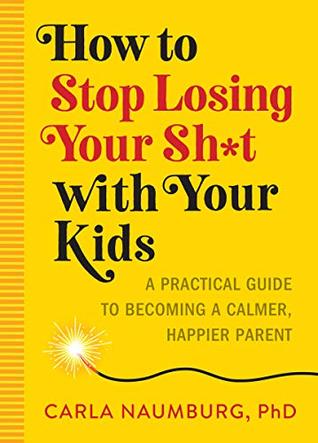More on this book
Community
Kindle Notes & Highlights
The point here is that if you haven’t yet been able to stop losing it, it’s not because you’re a failure. And it’s certainly not because there is anything wrong with you, either as a person or a parent. This is a really important point so I’m going to repeat it again in capital letters: YOU ARE NOT A BAD PARENT. Parenting is hard, losing your shit is part of the universal human condition, and you just haven’t gotten the right mix of advice and support yet. You can do this. I promise.
it is not your job to get them to stop pushing. Your job is to teach them, again and again, to notice and respond skillfully to their triggers
You’re doing an incredibly hard job, and you’re doing it without the right information, support, resources, and rest.
If you’re still blaming or shaming yourself or struggling with Bad Parent BS, reread Chapter 1 and go spend some time with people who love you and can remind you that (1) you’re awesome, (2) parenting is hard for everyone, (3) you’re gonna screw it up (it’s inevitable), and (4) you’re still awesome. Let me repeat that: Screwing up and being awesome are not mutually exclusive.
Finally, remember that it’s not your job to keep your kids happy. Big emotions don’t need to be fixed, they need to be felt. Children need to learn that there’s nothing wrong with feeling sad or mad or embarrassed or confused and that eventually those feelings will pass. If you can’t tolerate their meltdowns, they won’t be able to either. It all starts with you, so saddle up and get ready.
we’ll start with four nonnegotiables: single-tasking, sleep, support, and self-compassion.
Stress is the belief, feeling, or thought that we cannot handle whatever is happening.
but you have to get over yourself and ask. Not only is there no shame in reaching out for help, but your request may be helpful to your friends as well. Each time my friends reach out to me, they’re (a) reminding me that I’m not the only person who can’t do this alone, (b) giving me an opportunity to pay it forward, and (c) giving me permission to ask them for help, which is surprisingly awesome.
Notice, Pause, and Do Literally Anything Else.
There’s an easy way to remember this: connection before redirection. So calm down, apologize to your child, and own your shit.
8. The four nonnegotiable BuRPs (Button Reduction Practices) for cooling down your buttons are Single-Tasking, Sleep, Support, and Self-Compassion.


